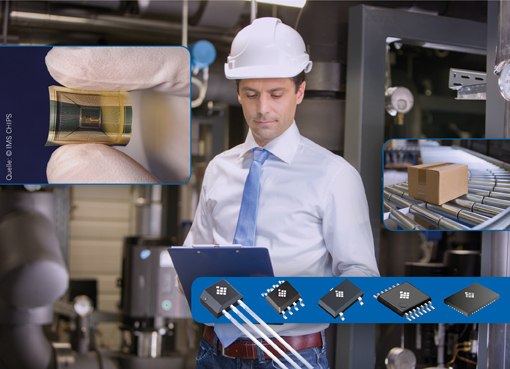Freiburg, July 14, 2016 – Micronas, a TDK group company, is taking part as a consortium partner in not one, but two projects sponsored by the Federal Ministry of Education and Research. The first research project for intelligent foils for Industry 4.0 is coordinated by the company Festo and is called ParsiFAL4.0, while the second project, named ROLLE, is led by the laboratory of drive technology at Saarland University and deals with self-organising commodity flows and production processes.
ParsiFAL4.0 aims to make production sites and packaging more intelligent through microelectronic sensor systems in thin foils. Smart sensor system labels, a type of intelligent sticker, will enable decentralized surveillance and control of the production environment. Packaging that features these innovative foils can gather information about the respective processes and can evaluate and exchange it. Production and logistics processes are thereby optimized and rendered more flexible. Micronas provides the sensors required for this technology in order to measure position. This is intended to enable the precise surveillance of actuator cylinder positions in pneumatically-controlled production systems, for example, which significantly improves many aspects of site operation such as efficiency, quality and even its life span.
Industry 4.0 applications also require intelligent actuators, such as the intelligent conveyor roller system with the project name ROLLE. Electric actuators are becoming increasingly important as transport systems in logistics and in automated production. The aim is to operate the flow of commodities efficiently and self-sustainably. This applies to classic transport and sorting lines on which commodities are transported by powered rollers, and also to newer systems which can freely move on a surface as a vehicle for transport. A component is thereby tasked with controlling these actuators in an optimal manner and simultaneously forming the interface to the digital world and to Industry 4.0. Functions of this variety, preferably as one-chip-solutions with cognitive abilities, will in future become key elements of the Internet of Things and Services in the fields of sensor technology and actuating elements.
“Germany has to maintain its role as a leading technology location in future too. In Industry 4.0 I see a great potential to keep jobs in Germany”, says Matthias Bopp, CEO of Micronas. “Innovative semiconductor products are the prerequisite for Industry 4.0. It is especially important that the semiconductor company is close to the system partner and end customer, as is the case with Micronas, for example”.
Micronas has repeatedly participated in current research projects over the years.



















